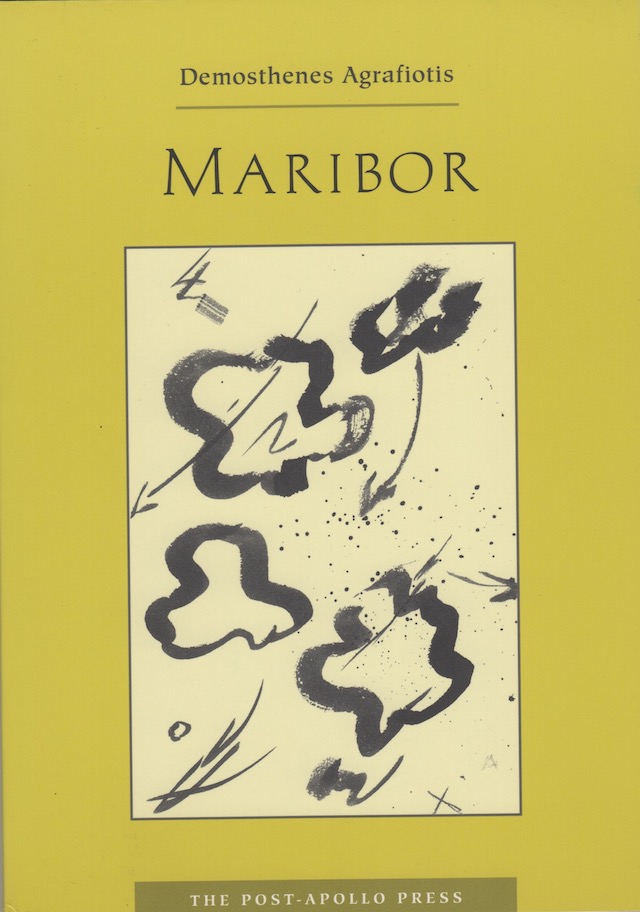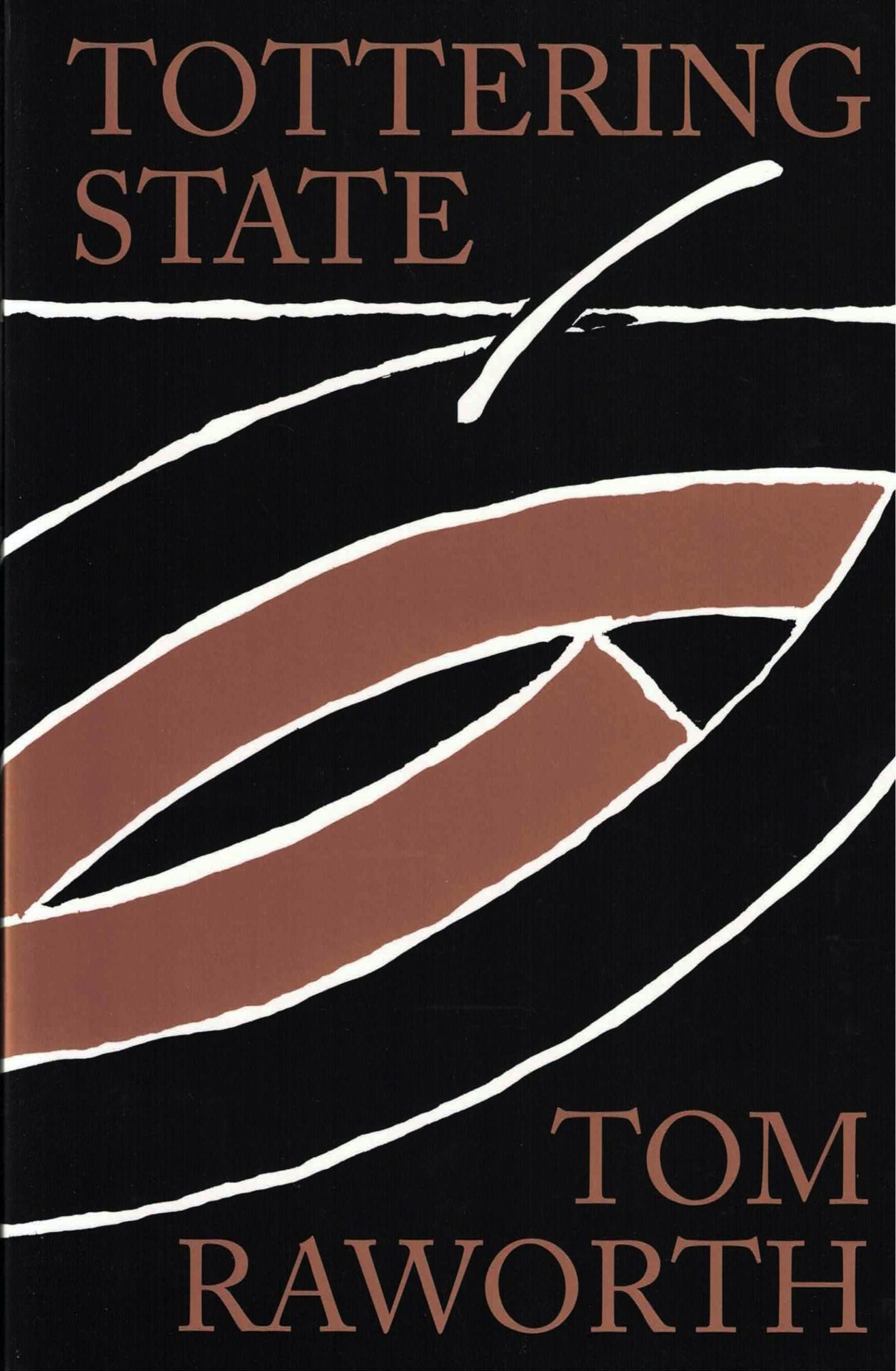From the Contemporary Poetry Series #2
Winner of the 2011 Northern California Book Award for Poetry in Translation
Demosthenes Agrafiotis’s Maribor is a book of thoughts, impressions, expressions and reflections from his travels to Hesperia (Western Europe) in the period 1980-90. The book is concerned with the constantly elusive identity of Europe as a geographic place, as a cultural gamble, as a historical problem, as a horizon for the future of humankind.
John Sakkis
Angelos Sakkis
Demosthenes Agrafiotis
Praise for Maribor
“who assigns names? / the name itself” Demosthenes Agrafiotis’s name assigned him a superb origin myth. He was born in the Agrafa, a region historically so remote its inhabitants eluded conquest and were thus undocumented or “unwritten” in the records of the empire, a place that consequently became a refuge for forbidden Greek literacy. Agrafiotis translates the paradox of his inheritances into poetry that collaborates brilliantly with the autonomy of the sign, animating its multiple lives and orchestrating the resonances of its indeterminacy. Mining the opaque strata between “epigrams on the gray marble” and what is “written with chalk/ on the banks of subterranean cause,” Maribor gives us both artifact—of the ephemera of communication, institutions, power—as well as blueprint for imagining an “alphabet of the future.” A master of the contemporary hermetic, Agrafiotis can bring to light in one stroke both the evanescence and endurance of the writing on the wall, the play between these inherent to reading. John Sakkis and Angelos Sakkis have performed a great service to English readers with this precise, dynamic translation of one of the most important experimentalists working today.
— Eleni Stecopoulos
As a North American I can only nod in awe at the dark mystery these poems offer, and the chastening, steel-eyed precision of European thought. In the hands of a master poet like Demosthenes Agrafiotis—”how many images can the species endure”—an old world emerges that is both bone-tired and on the cusp of renewal. The Europe of cafés, fashionable clothing, insane nationalist wars, & razor-edged critical thought is crisply present; while beneath it all beats a spiritual pulse as archaic as the Magdalenian caves. Into the tiny fractures of modern economy, philosophy, personality, and history, leak the structures of myth. Maribor is Slovenia’s second largest city, riddled with beauty & tragedy, & one site of the ethnic conflicts of the twentieth century. It is also a city that sits at a spiritual center—a center this poem, composed during the tumult of the 1990s, managed to reach. John and Angelos Sakkis are to be congratulated for having brought us a living poem in American-English. They manage to navigate not just contemporary Greek, but French, Italian, Latin, German, and such stunning lines as “the sparrow comes and perches / on the chair and leaves a dropping / all words are available / and suitable.”
— Andrew Schelling
I can sense a historical aspect moving forward within the book. It takes me from business districts to coffee shops throughout the march of progress. Near the end of the book, Agrafiotis writes, “many roads, many directions/the same outcome”—and I sense that the outcome is the end of the world, and I am drawn into the book to find out how he brings about this chilling effect.
— Adam Robinson, HTML Giant





The vivacity of the language is important; as a language dies out so does its cultural continuity. Idioms, phrases, and simple humor are lost along with a language, features that find no place in a new language.
— Amy Henry, Gently Read Literature